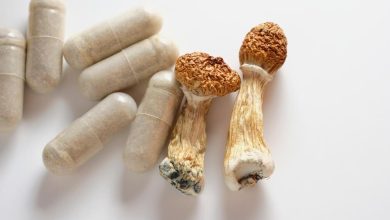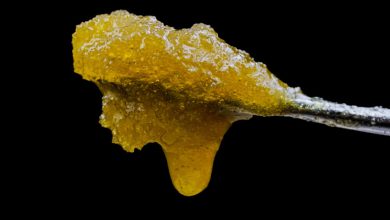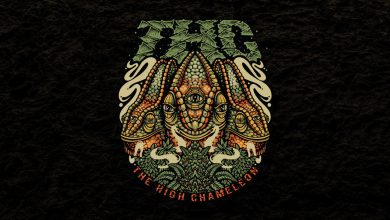What is Kratom and what are its effects?- Alchimia Grow Shop
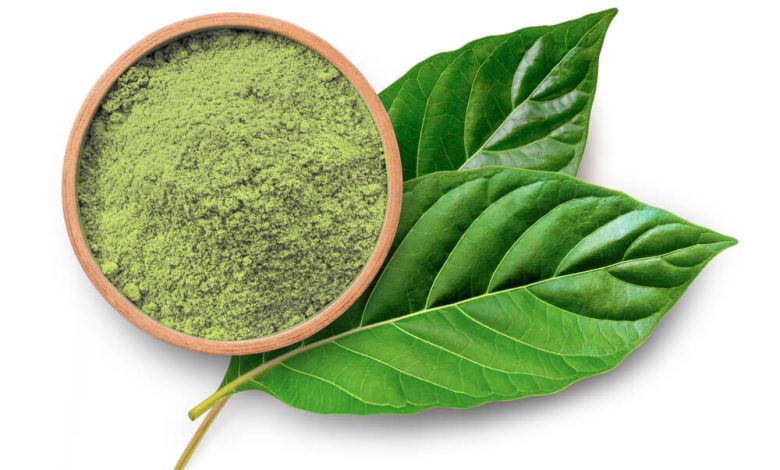
In recent times, a psychoactive substance known as kratom has begun to gain notoriety and popularity in some consumer circles. Originally from Southeast Asia, kratom is extracted from the leaves of a tree that has been used for centuries for its medicinal and stimulant properties by indigenous populations. As its use expands in the West, kratom has sparked intense debate about its benefits and risks.
In this article, we will explore in detail what kratom is, its effects and applications, and the controversies and regulations surrounding it. Join us on today’s journey to better understand this controversial substance that has been capturing the attention of many consumers and Authorities in recent years.
What is kratom?
Kratom, also sometimes called kratum or ketum, is a psychoactive substance obtained from the leaves of the Mitragyna speciosa tree, native to Southeast Asia, especially Thailand, Indonesia, and Malaysia. This plant has been traditionally used in local medicine for its multiple therapeutic properties. Kratom leaves can be chewed, brewed into tea, or dried and powdered for consumption. At low doses, kratom acts as a stimulant, providing energy and improving mood, while at higher doses, it has sedative and analgesic effects, making it useful for pain management.
Recently, kratom has gained popularity in the West, where it is valued both for its recreational applications and its potential to relieve symptoms of various conditions, including chronic pain and anxiety. However, its increasing use has generated debate about its safety and associated risks, leading some jurisdictions to regulate or even prohibit its sale and consumption.
Effects of kratom
Kratom produces a wide range of effects that vary depending on the dose and strain used. Here is how these effects manifest themselves:
Stimulant Effects (Low Doses)
At low doses (1-5 grams), kratom acts as a mild stimulant. Users often report effects like these:
- Increased energy: A feeling of greater vitality and vigor
- Improved mood: Feeling of euphoria and well-being
- Greater mental alertness: Increased concentration and attention
- Sociability: Improvement in communication and reduction of shyness

Sedative and Analgesic Effects (Moderate to High Doses)
In moderate to high doses (5-15 grams), kratom has sedative and analgesic effects. The most common effects include:
- Relaxation: Feeling of calm and tranquility
- Pain relief: Reduction of chronic and acute pain
- Anxiety reduction: Decrease in anxiety and stress symptoms
- Sleep improvement: Sleep induction in people with insomnia
Side effects
Like any substance, kratom can have side effects, especially if used excessively (frequently) or in too high doses:
- Nausea and vomiting: Common in high doses
- Dizziness and headaches: May occur with prolonged use
- Constipation: Digestive problems
- Dependence and withdrawal syndrome: Risk of physical dependence and withdrawal symptoms when stopping use
Long-term effects
In addition to the side effects we have already seen, prolonged use and high doses of kratom can lead to a series of health problems, such as:
- Liver damage: Potential risk of liver problems
- Heart problems: Changes in blood pressure and heart rate
As you see, kratom offers a variety of beneficial effects when used in a controlled and appropriate manner, such as relieving opioid withdrawal symptoms. However, it is crucial to be aware of its possible side effects and risks, especially with long-term use. As always, it is recommended to use kratom under the supervision of a health professional to minimize risks and maximize benefits.
Karkubi: What is it and what are its effects?
For a few years, a new drug has gained popularity in Spain and, especially, in Morocco. This is Karkubi, a mixture of psychotropic drugs with hashish (among other ingredients) with a powerful effect on the user. Today we tell you everything you need to know about this new substance.
Production and distribution of Kratom
The production and distribution of kratom is a meticulous process that begins in the lush jungles of Southeast Asia, in areas such as Thailand, Indonesia, Malaysia, and Papua New Guinea, where it is cultivated and harvested. The leaves of the plant are harvested by hand when they reach optimal maturity and carefully sun-dried before being processed and ground into a fine powder, capsules, or extracts. From there, it is exported worldwide, reaching distributors in Europe who guarantee its quality and legality. Despite legal differences between countries, kratom continues to gain popularity due to its unique properties and potential benefits.
Once processed, it is packaged and shipped to international distributors. Export is carried out mainly by sea or air from the ports and airports of the producing countries. In Europe, specialized importers receive shipments and are responsible for distribution to retailers and end consumers. These importers must comply with local regulations to ensure the quality and legality of the product. Kratom is sold in specialized stores, both physical and online, where it is offered – as we have already seen – in various presentations such as powder, capsules, and liquid extracts.
In some European countries, kratom is subject to strict regulations. As with many other products, distributors must ensure that their products comply with safety and quality regulations established by health authorities. This process ensures that the kratom available in Europe is safe for consumption and meets the required quality standards.
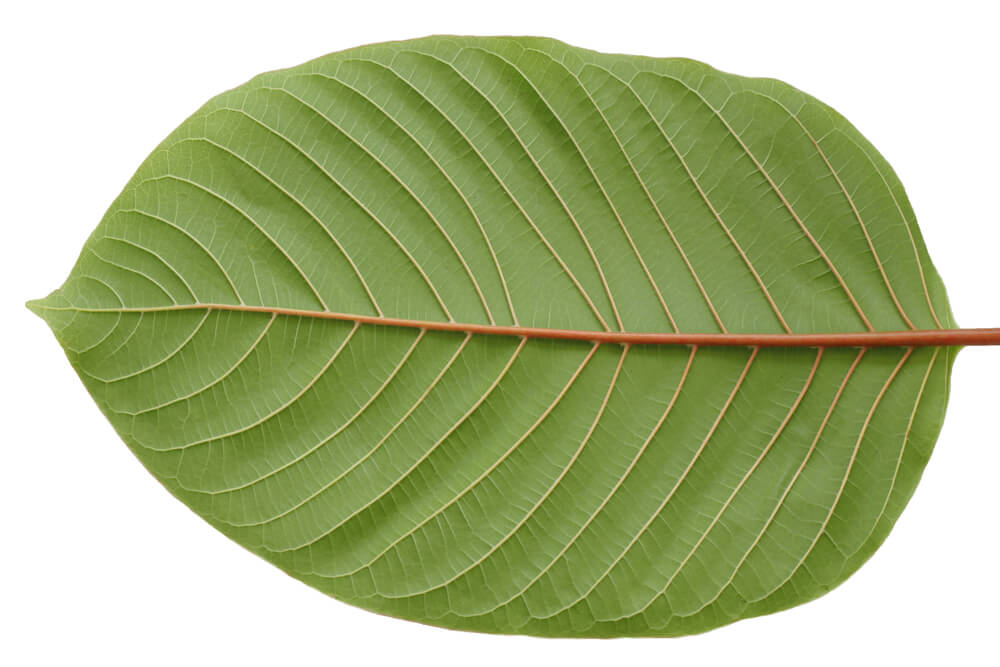
Legal Status of Kratom
The legal status of kratom in Europe varies considerably between countries. In some, such as Poland and Denmark, it is completely prohibited, while in others, such as the United Kingdom, it is regulated and can be purchased legally. In Spain, kratom is not specifically regulated, but its sale for human consumption is not allowed; however, it can be sold as a “research product.” The situation is similar in other countries where kratom has not been explicitly legislated, thus allowing its marketing under certain conditions.
In America more or less the same thing happens; In the United States, for example, kratom is legal at the federal level, but some states and cities have banned its sale and use. Places like Alabama, Arkansas, Indiana, Rhode Island, Vermont, and Wisconsin have laws prohibiting kratom. In contrast, countries like Canada allow its sale, although it is not approved for human consumption. In Latin America, kratom is less known, but no specific bans are reported in most countries. However, it seems that the DEA has already put this substance in its sights:
“Consumption of kratom alone or in combination with alcohol or other drugs is a major concern as it can lead to serious health effects, including death,” Russ Baer (DEA)
Given the landscape, it is not surprising that the regulation of kratom is expected to advance in several countries due to its growing popularity and safety concerns. In the United States, the FDA has expressed interest in controlling its sale and use, and some states have implemented their own regulations. Canada and some European countries are considering similar regulations. Regulation could include quality standards, proper labeling, and restrictions on alkaloid content, seeking to balance access to kratom with protecting public health.
References:
- Kratom: The Truth About Mitragyna Speciosa: An Introductory Guide to Capsules, Powder, Extract, And The Full Effects, Colin Willis
- What is kratom? The truth behind the popular—and controversial—supplement, Brian Handwerk
- Kratom, National Institute on Drug Abuse
The articles published by Alchimiaweb, S.L. are reserved for adult clients only. We would like to remind our customers that cannabis seeds are not listed in the European Community catalogue. They are products intended for genetic conservation and collecting, in no case for cultivation. In some countries it is strictly forbidden to germinate cannabis seeds, other than those authorised by the European Union. We recommend our customers not to infringe the law in any way, we are not responsible for their use.

